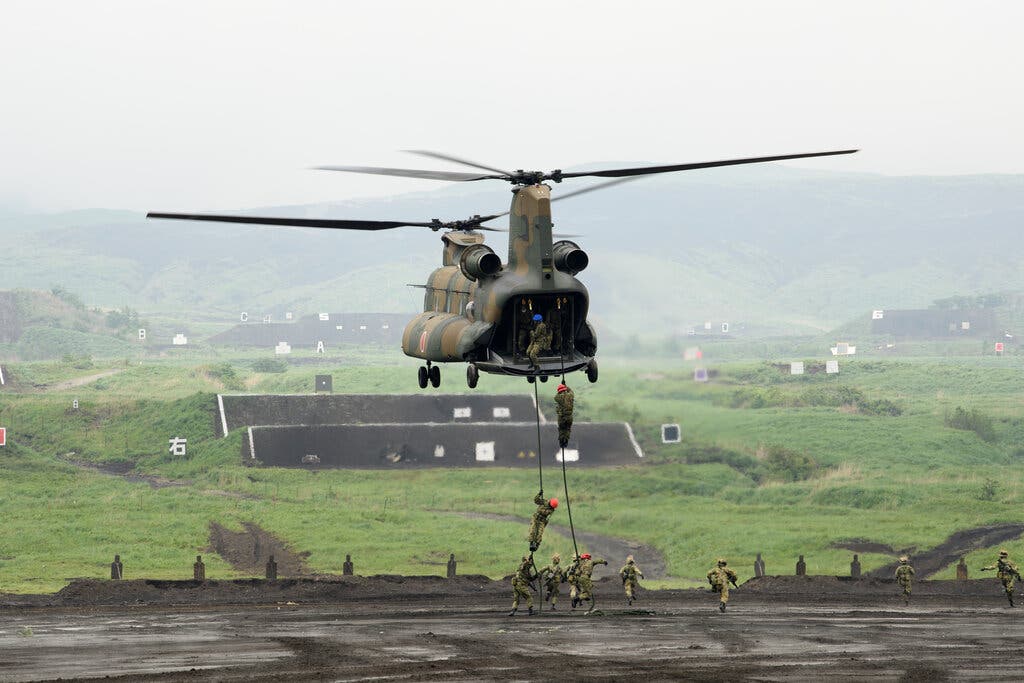After months of deliberation, Japan’s cabinet authorised the country’s largest boost in military expenditure in decades on Friday, as officials voiced increasing anxiety over the potential of being drawn into a fight over Taiwan.
It is part of the biggest yearly budget package in Japanese history, which totals more than $940 billion and includes a 6.5 percent raise in wages. It contains hundreds of billions of dollars in investment to aid in the recovery of the economy from the effects of the coronavirus epidemic, among other things.
As well as that, it contains more than $51.5 billion for the military, representing a rise in a defence budget that is far lower than that of its partner, the United States, as well as that of China, the regional powerhouse. Japan’s officials have stated that the increased investment is necessary to safeguard the country in a security climate that is getting “more demanding at an unprecedented rate.”
In recent months, Japanese politicians and officials have expressed concern that regional security is being jeopardised by rising tensions between the United States and China, which some believe might lead to a confrontation over Taiwan, whether accidentally or on purpose.
The amount of money agreed by the cabinet is less than the amount of money sought by the Japanese defence ministry this summer. Despite being substantial by Japanese standards, the Japanese military budget is a long cry from the military budgets of the United States, which is believed to be roughly $778 billion, and China, which is estimated to be $252 billion. The new amount includes expenditures authorised last month as part of Japan’s largest-ever supplemental military budget, which was approved in December.
In the years since former Prime Minister Shinzo Abe gained power in 2012, he has pledged to boost Japan’s military and reform the country’s pacifist Constitution. The charter, which was drafted by the American occupiers after World War II, prohibits Japan from engaging in military action unless in self-defense. Conservative lawmakers have long attempted to amend that clause, claiming that the nation needs more flexibility in order to protect itself against dangers from outside.
North Korea was considered a danger to Japan for many years because of its nuclear and missile tests, which were perceived as a menace to Japan. However, in recent years, Japan has come to recognise that China’s military development and rising assertiveness in the area pose a larger threat to the country’s security.
It is claimed by both Japan and China that they have sovereignty over a set of Japanese-controlled islands in the East China Sea, known as the Senkakus in Japanese and the Diaoyu in Chinese, which is located in the East China Sea. However, in the previous year, military hawks in Japan have focused their attention more intensely on the escalation of tensions over Taiwan.
Taiwan is a democratically run island that China claims as an intrinsic part of its sovereignty, and in recent months, Beijing has engaged in many stunning shows of military strength surrounding the island. These actions have been roundly condemned by the United States, which has responded by sending its own ships to the area.
In recent months, Japanese politicians from across the political spectrum have started publicly speculating on what was formerly considered a taboo subject: the impact of a military clash over Taiwan on the country. Defense planners asked for a “feeling of urgency” over the tensions in a white paper published in July, which was the first to specifically name Taiwan.
If a battle were to erupt, officials believe that Japan would be drawn into it, placing several of the islands in the Ryukyu archipelago in the country’s southwest at danger of being destroyed.
Some of those islands would be fortified with missile systems and garrisons for Japanese troops, according to the military budget authorised on Friday. Some residents of the Ryukyus Islands are concerned that these measures may make them targets in the event of a confrontation with the United States.
Japanese capabilities in areas like as cyberwarfare and space combat will be strengthened as a result of the additional funding, which will include a significant increase in research into sophisticated technologies that the defence ministry described as “game changers.”
Japanese public opinion on the level of the country’s military expenditure is polarised, particularly among the country’s neighbours, as a result of the country’s aggressive participation in World War II. For decades, the great majority of Japanese have resisted significant increases in military expenditure, and there is minimal popular support for revising the Constitution to abolish the restriction on offensive combat.
For decades, Japanese officials fought to maintain military expenditure at or below 1 percent of the country’s yearly gross domestic product. Budgets for the Defense Department, including the one passed last Friday, have exceeded that barrier on multiple occasions in recent years.

